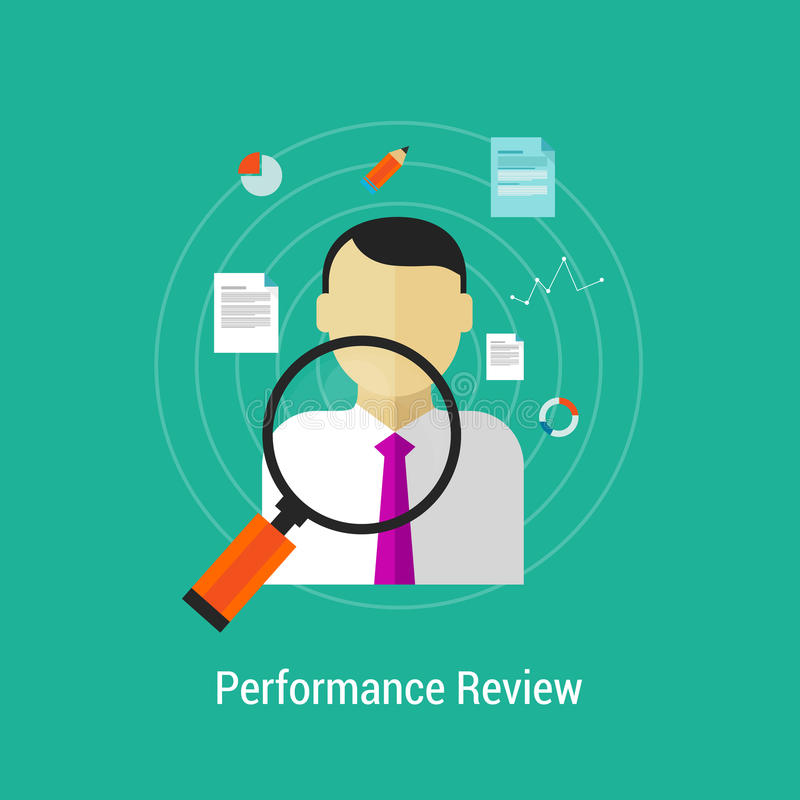
Preparation is the key to an efficient and effective performance evaluation meeting.
Without preparation the process will be slow and frustrating for both the staff member and the manager/supervisor. Good preparation ensures that both parties thought through any potential difficulties and have followed a reliable process that is both fair and objective. As manager/supervisor you should spend at least one hour doing preparation in this way.
Both manager and staff member should review the performance planning and agreement document in preparation to the performance appraisal. Follow the following procedure when preparing for a performance appraisal:
- Review the relevant business and team performance plan.
- Take note of individual goals and objectives that was agreed upon.
- Place emphasis on both performance and development objectives.
- Have the objectives been achieved or not and to what extent?
- Identify negative achievements and identify possible reasons why goals and objectives were not achieved.
- Identify positive achievements and identify possible reasons why goals and objectives were achieved.
- Identify gaps and possible reasons for these gaps.
- Formulate constructive criticism in advance, focusing on both good and poor performance.
- Plan ways in which you will maintain and enhance self-esteem throughout the discussion.
- Think about how to create a positive atmosphere in the meeting (by not being defensive, demonstrating good ideas, listening to the other person carefully, maintain self-esteem, asking for clarification, etc.).
Prepare Documentation To Be Used During The Interview

Distribute copies of performance planning and agreement documentation as well as any review documentation at least two weeks before the actual performance review.
You would need the following documentation for a performance review:
- The staff member’s personnel and work record.
- Development or career planning file, if available.
- Original copy of performance planning and agreement documentation.
- Any previous performance review documentation applicable to this performance cycle.
- Any new documentation required for performance appraisal.
NOTE: It is a good idea to personalise performance appraisal documentation by using original copies (not photocopies) with the staff member’s name and details printed on it.
Interview Agenda, Process, Venue And Timing.
To ensure buy-in to the process, agree with the individual/team on the agenda, the process to be followed and the venue and timing of the meeting.
You could potentially arrange an informal meeting to discuss and agree the abovementioned logistical matters.
Agenda: Put together an agenda that will provide opportunity for both parties to take part in the process on an equal basis. Also ensure that equal emphasis is placed on both performance and development. Allow staff to put forward suggestions for items to be included.
Process: Briefly go through the performance management process and purpose to ensure understanding and ensure that everybody is comfortable with the process. Allow for questions and clarification of uncertainties.
Venue: The venues should be a confidential, non-threatening and neutral place in which both parties can interact on an equal footing. A round table with comfortable meeting chairs is ideal. The line manager’s office is a definite no-no. Ensure that the venue will be interruption free. There should definitely not be a telephone in the venue. You can also put a note on the door to ensure that people do not interrupt.
Timing: Agree on a time that would suite both parties. Set aside an uninterrupted hour for this meeting. Early morning, when everybody is fresh, is better than late afternoon after a long and challenging day. It is also less stressful to have the review over and done with as soon as possible. Do not arrange more than 2/3 performance reviews per day. Performance reviews are emotionally draining, and you need to give every staff member your full attention.
Review Performance Against Agreed Upon Objectives, Goals And Standards

Throughout the performance cycle, employees have been managing their own performance, from setting and monitoring performance and development objectives, to regularly reviewing progress with you. Consequently, review discussions should hold no surprises. This session should simply summarise past discussions, while the major focus is on continued development and future success.
It is important that the atmosphere in performance review meetings is positive and that both parties treat each other as equals. Make the other party feel at ease.
Remember that they are entering this meeting with feelings of uneasiness, fear, trepidation and even hostility.
The manager/supervisor’s role in this meeting is to ensure that the organisation’s performance requirements will be achieved through the actions of the individual staff members they manage. This means the outputs identified as the business plan, and team/department plan, will be achieved through the aggregated individual performance of staff.
Purpose of the formal performance review:
- To review the performance of the staff member.
- To review the performance of the manager in supporting the staff member (upward feedback).
- To evaluate the progress on a learning and development plan for the staff member.
Before the Review
- Decide what rating you think should be awarded to the staff member and write down evidence to support this view. Make sure this rating can be justified in terms of the ratings you have given in the previous formal reviews (no-surprise principle).
- Think about how well you have performed in supporting the work of your staff member. Write down some specific examples of strong support and ideas about how to improve performance.
- Think about the job performance of the staff member over the past six months / year. What does this tell you about the things they are good at and the things they are not so good at? Does it point to any areas in which they need development?
- Consider each of the staff member’s performance results and think about additional skills they might need to successfully achieve these. Write them down and suggest them at the review meeting.
During the Review
- The staff member may be very anxious about this meeting, so do not do anything to aggravate the situation (being flippant, too intense, late for the meeting and so on).
- To break the ice and get the staff member at ease you could offer them something to drink, ask about their personal life (family, hobbies, etc.) or ask them how they are doing lately.
- Begin the performance review by setting the context - provide an overview of the department and organisation’s overall performance.
- Review the performance agreement by looking at Key Result Areas. Ask the staff member to tell you how they feel they have performed over the past six months/year, without going into too many details.
- Start the formal review by focussing on the performance objectives related to each KRA one-by-one.
- Ask the staff member to explain what rating they think they deserve for every KRA respectively and let them give reasons for this rating. Support them where you feel they are right and give examples of your own.
- If you think they have rated themselves too high or too low, tell them. Provide specific examples and give them plenty of opportunity to question your judgement and provide their own supporting evidence.
- Receiving feedback can be threatening to people. Do not become aggressive or defensive at the meeting. It this becomes to happen call ‘time out’.
- Stick to the facts. Do not let personality differences get in the way of a productive meeting.
- Make sure you devote adequate time to discussing the learning and development action plan with the staff member. This meeting is not only a performance review.
- If there is a disagreement that you cannot resolve easily, follow the process established for reaching agreement.
- If you still cannot reach agreement, you may need to resort to the formal dispute resolution process.